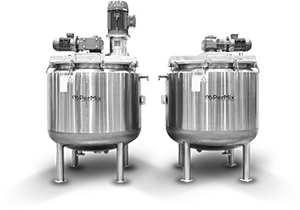Industrial Mixers
PerMix News & Updates



In the heart of every conscious kitchen lies a single question: What if waste wasn’t waste at all?
Koji — a filamentous mold (Aspergillus oryzae) — is quietly redefining how forward-thinking restaurants approach waste, sustainability, and flavor development. Traditionally used in Asian cuisine to produce soy sauce, miso, and sake, koji is now stepping into the limelight as a transformative agent in the zero-waste culinary movement.
Koji thrives on grains like rice, barley, and legumes, breaking down proteins and starches into amino acids and simple sugars. When introduced to “scrap” ingredients such as cheese rinds, vegetable trimmings, or surplus dairy, it unlocks new depths of umami and complex flavor — often in the form of garums, misos, and vinegars.
Rather than discarding ingredients, restaurants can now ferment them, transforming food waste into high-impact culinary tools. It’s a circular solution where flavor meets function — a strategy that redefines value, both gastronomically and environmentally.
While the fermentation process is ancient, scaling it for modern foodservice environments requires precision and control — and that’s where PerMix answers the call.
PerMix has developed a mixer specifically designed for koji fermentation, engineered to support:
Whether you’re making koji for garums, miso-style pastes, or next-generation sauces, PerMix provides the mechanical stability to turn tradition into scalable innovation — without sacrificing authenticity or sustainability.
Restaurants pioneering koji fermentation aren’t just making great food — they’re creating replicable systems that reduce costs, elevate menus, and significantly cut down on landfill-bound waste. Koji is proving that sustainability isn’t a trend — it’s a toolkit. And it’s delicious.
By combining ancient fermentation wisdom with modern engineering, PerMix empowers chefs, food scientists, and restaurant owners to rethink their waste streams — and ferment something better.
